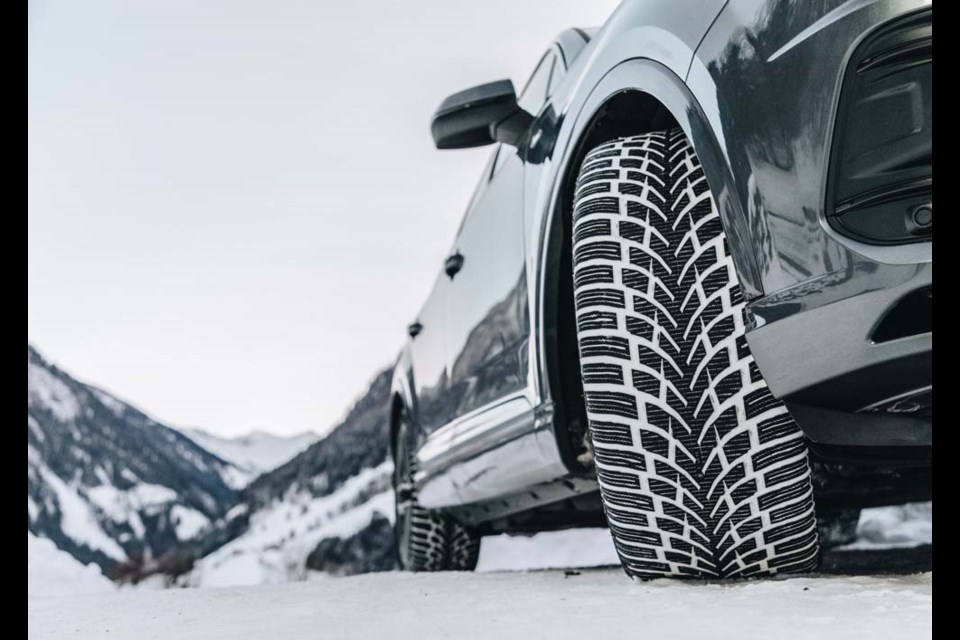Winter weather is hard on your vehicle and its engine.
British Columbia’s Shift Into Winter Campaign is aimed at helping drivers navigate winter weather safely. Here are some winterizing tips to help you make sure your ride is up to the challenge, whether you use it personally or for work.
Install winter tires
Winter tires improve driving safety by providing better traction in snow, slush, and icy conditions. Use four matched winter tires that carry the mountain/snowflake symbol and with tread no less than 3.5 millimetres. This applies even if you drive a 4x4 vehicle.
Tires marked with an M+S (mud and snow) are also legally acceptable but do not provide the same degree of performance as a mountain snowflake tire in severe winter conditions.
Do winter maintenance
Preventative maintenance is key. Make sure your battery, brakes, lights and fuses, cooling and heating systems, electrical and exhaust systems, and belts and hoses are in tip-top shape before hitting the road for winter driving.
Top up your fuel
Filling up your gas tank will help to avoid condensation and moist air inside the tank, which can cause fuel lines to freeze as well as other serious issues. Having a full charge on your electric or hybrid vehicles is also a must. EV battery power drains faster in colder weather.
Change your wiper blades
Use winter blades. They are heavier and push snow and ice more easily.
Fill your windshield washer reservoir
Make sure it’s winter-rated, and carry extra washer fluid in your vehicle.
Pack an emergency kit
Be prepared for a possible breakdown. Recommended items for your kit include:
• Blankets and first aid supplies
• Shovel and traction mat, sand or kitty litter, sandbags for extra weight
• Fuel line antifreeze
• Flares and matches or lighter
• Tire chains and gloves
• Flashlight and extra batteries
• Battery jumper cables
• Non-perishable food
• Extra clothing and footwear
The Shift Into Winter campaign is managed by Road Safety at Work with support from WorkSafeBC, the provincial government, the Justice Institute of BC, the BC Road Builders and Heavy Construction Association, and ICBC. For more information visit .




